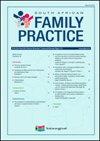2008 至 2022 年南非新任家庭医生的职业发展途径
IF 1.2
Q2 MEDICINE, GENERAL & INTERNAL
引用次数: 0
摘要
背景:自 2008 年以来,全科医学一直在南非培训专科家庭医生,但并未对他们的职业发展路径进行调查。本研究旨在确定 2008 年至 2022 年间新获得资格的家庭医生的职业发展途径:方法:通过电子问卷对所有 186 名家庭医生进行横断面描述性调查:答复率为 44.6%(83/186)。总体而言,9.6%的人移居国外,10.8%的人不再执业,79.5%的人仍在南非执业。在后者中,14.5%的人在私营部门执业,55.4%的人在公共部门执业,9.6%的人同时在私营部门和公共部门执业。在公共部门执业的人员中,33.7%担任专科家庭医生职位,12%担任医务官员职位,4.8%担任管理职位,4.8%担任学术职位。对于在两个部门工作的人来说,与安全和安保有关的问题都很重要,而对于在公共部门工作的人来说,与临床团队同事的关系也很重要。总体而言,参与者都在其培训省份附近或范围内执业,分布不均:只有三分之一的毕业生在公共部门担任专科家庭医生职位。需要注意让更多的毕业生留在此类岗位上,以实现国家立场文件的目标。在私营部门的比例低于预期。应进一步探讨不再行医的原因:这是自南非设立家庭医生这一新专业以来,首次对家庭医生的职业发展途径进行研究。了解这些途径将有助于卫生领域的人力资源规划。本文章由计算机程序翻译,如有差异,请以英文原文为准。
The career pathways of new family physicians in South Africa from 2008 to 2022
Background: Family medicine has trained specialist family physicians in South Africa since 2008, but not investigated their career pathways. The study aimed to determine the career pathways of newly qualified family physicians between 2008 and 2022.Methods: A cross-sectional descriptive survey of all 186 family physicians via an electronic questionnaire.Results: Response rate was 44.6% (83/186). Overall, 9.6% emigrated, 10.8% were no longer practising, and 79.5% were still practising in South Africa. Of the latter, 14.5% were in the private sector, 55.4% in the public sector and 9.6% in both. Of those in the public sector, 33.7% were in specialist family physician posts, 12% in medical officer posts, 4.8% in managerial positions and 4.8% in academic positions. Issues relating to safety and security were important to those working in both sectors and relationships with colleagues in the clinical team, to those in the public sector. Overall, participants practised near or within their province of training and were not equitably distributed.Conclusion: Only a third of graduates were in specialist family physician posts in the public sector. Attention needs to be given to retaining more graduates in such posts to achieve the goals of the national position paper. The proportion in the private sector was lower than expected. The reasons for no longer practising medicine should be further explored.Contribution: This is the first study on the career pathways of family physicians in South Africa since the new speciality was created. Understanding these pathways will assist with human resources for health planning.
求助全文
通过发布文献求助,成功后即可免费获取论文全文。
去求助
来源期刊

South African Family Practice
MEDICINE, GENERAL & INTERNAL-
CiteScore
1.50
自引率
20.00%
发文量
79
审稿时长
25 weeks
期刊介绍:
South African Family Practice (SAFP) is a peer-reviewed scientific journal, which strives to provide primary care physicians and researchers with a broad range of scholarly work in the disciplines of Family Medicine, Primary Health Care, Rural Medicine, District Health and other related fields. SAFP publishes original research, clinical reviews, and pertinent commentary that advance the knowledge base of these disciplines. The content of SAFP is designed to reflect and support further development of the broad basis of these disciplines through original research and critical review of evidence in important clinical areas; as well as to provide practitioners with continuing professional development material.
 求助内容:
求助内容: 应助结果提醒方式:
应助结果提醒方式:


